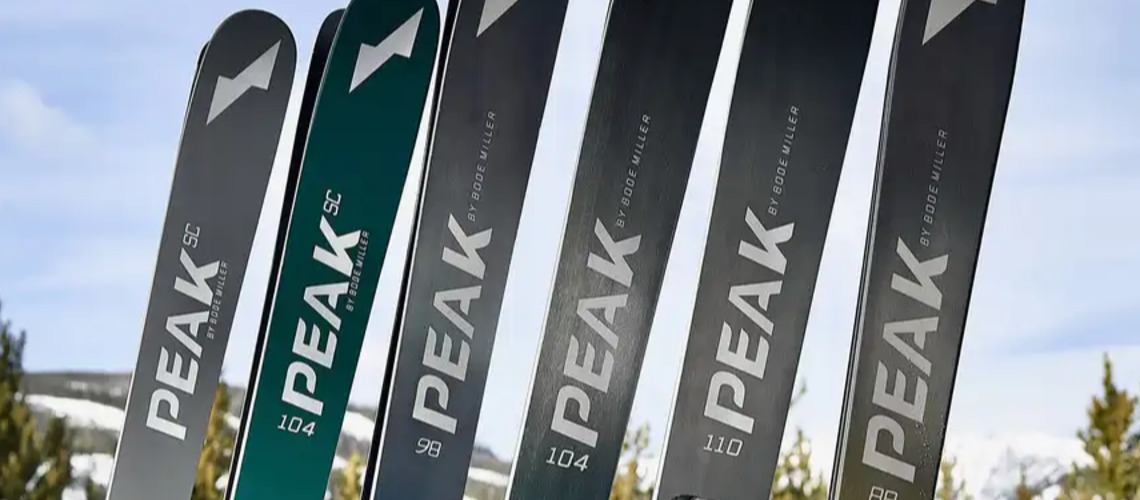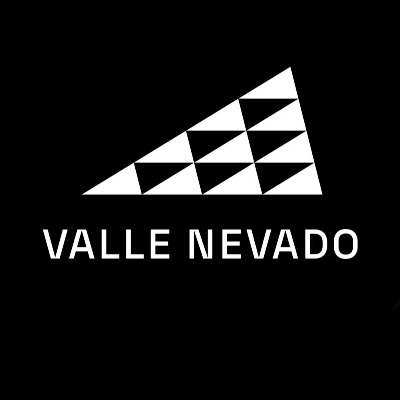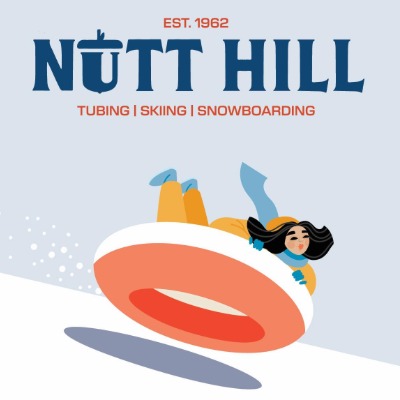Peak Ski Company, Co-Founded By Bode Miller, Collapses Amid Debt & Allegations Of Mismanagement

Peak Ski Company, the high-profile ski venture launched in 2021 by Olympic gold medalist Bode Miller and seasoned resort executive Andy Wirth, has reportedly collapsed, just three years after its much-hyped debut. The Montana-based company, which once aimed to revolutionize ski manufacturing, is now facing accusations of mismanagement, unpaid debts to athletes and contractors, and a trail of broken promises..
The Montana-based ski manufacturer, co-founded by six-time Olympic medalist Bode Miller and ski resort executive Andy Wirth in 2021, officially shuttered operations this month after struggling with mounting debts and operational challenges that co-founder Miller described as an unsustainable "monthly burn rate."
Bode Miller, who served as Chief Innovation Officer, attributed the company's downfall to soaring operational costs and unmet investor commitments. In an email to The Colorado Sun, Miller stated, "There was no way to sustain the monthly burn rate," and cited significant debt carried over from challenges in the first year of operations. He also mentioned that while several investors had made commitments, the funding never materialized, contributing to the shutdown of "most parts of the company."
“Which was one of the factors that led us to where we are at. While that is unfortunate, it alone is not the reason we are shutting down most parts of the company,” Miller said. “Year one was the main problem, we had major challenges that were outside of what we had planned and modeled for, so we had significant debt that continued to roll forward into year two.”
Despite a successful crowdfunding campaign in 2024 that raised over $1.2 million from nearly 600 investors, Peak appears to have defaulted on numerous financial obligations, including vendor fees and promotional partnerships. Reports indicate that more than 2,000 skis remain unpaid for at a factory in Slovenia.
Jonathan Ellsworth of Blister Review did not mince words, calling the company's behavior "indefensible" and asserting, "You don't sign on some of the heroes of our sport and then steal from them, nor do you ghost the skiing public."
From Industry Darling to Cautionary Tale
Peak Ski Company burst onto the scene with revolutionary promise. The company's signature innovation—a patented "keyhole" cutout design in front of the toe binding—was marketed as a breakthrough that would make skis more flexible and turnable without sacrificing stability. Industry publications heralded the design, and the Snowsports Industries America trade group ranked Peak among the five most memorable brands after just one season.
"It was an unprecedented ascent for a brand-new ski company," said Jonathan Ellsworth, founder of outdoor media company Blister, who had featured Miller on his podcast to discuss the innovative skis.
The company offered six models in its inaugural year and pioneered a direct-to-consumer e-commerce approach while promising to revolutionize ski manufacturing with automated production processes. Early sales appeared strong, with the company claiming more than 4,000 skis sold and $3 million in revenue in its first year.
Warning Signs and Unpaid Promises
However, cracks in Peak's foundation became evident early in its second season. The company began offering buy-one-get-one-free deals and free bindings with purchases—moves that typically signal financial distress in the ski industry.
More damaging were the allegations from high-profile athletes who had joined the company's roster. Chris Davenport, an Aspen big-mountain skiing legend who signed on as senior director of skiing and product innovation in 2022, said his paychecks stopped coming shortly after he joined.
"It's such a sad story. It did not need to go down this way," Davenport told The Colorado Sun. "In my 30 years as a professional skier working with several of the industry's top brands, I've never seen such egregious business behavior."
Freeskiing icon Michelle Parker, who left her longtime sponsor Black Crows to join Peak as head of product design, faced similar treatment. "They paid maybe a quarter of the three-year deal," Parker said of her contract. "It was too good to be true."
Both athletes have retained legal counsel and drafted breach-of-contract lawsuits, though their attorney questions whether any recoverable assets remain.
Investor Crowdfunding and Broken Promises
The company's troubles deepened despite a successful crowdfunding campaign in February 2024 that raised over $1.2 million from 592 investors through Republic. The campaign promised various rewards, from signed posters for $500 donors to ski days with Bode Miller for those contributing $50,000 or more.
In promotional videos, Miller positioned the venture as "the end of my athletic career and the beginning of my legacy impact on the sport," declaring it was his "time to give back to the sport."
That legacy now appears tarnished. The company's Bozeman showroom has closed, its website went dark, and approximately two dozen employees have been laid off. Perhaps most tellingly, nearly 2,000 finished skis reportedly sit unpaid for at the Elan factory in Slovenia where Peak manufactured its products.
Ambitious Plans Left Unrealized
Peak's collapse is particularly striking given the ambitious scope of Miller and Wirth's vision. Internal documents revealed plans for a revolutionary 12-year partnership with German manufacturing company Bihler that would have automated ski production, reducing manufacturing time from 45-75 minutes per pair to just four minutes.
The "Peak Bolt" production strategy aimed to capture 40% of the global ski and snowboard market—approximately 5.5 million units annually—by 2029. The partnership envisioned new facilities in Germany by late 2025 and Bozeman by mid-2026.
Additional ventures tied to Miller's brand have also failed to materialize, including a planned $25 million ski academy at Colorado's Granby Ranch that was announced in 2021 but never developed.
Industry Impact and Accountability
The collapse has sent shockwaves through the tight-knit ski industry, where relationships and reputation are paramount. Industry veterans have expressed particular outrage over the treatment of respected athletes like Davenport and Parker.
"You just can't operate like this in the outdoor industry," Ellsworth said. "They are bad actors and they need to be called out and held accountable. You don't sign on some of the heroes of our sport and then steal from them."
The situation has been compounded by what critics describe as a lack of communication from the founders following the company's troubles. Wirth has referred all inquiries to Miller, who acknowledged the closure in a brief email statement.
"There was no way to sustain the monthly burn rate," Miller explained, citing investor commitments that never materialized and operational challenges that exceeded their planning models.
What's Next
Miller indicated hopes to sell the remaining inventory to pay debts owed to former employees and athletes, though the feasibility of such recovery remains unclear. He expressed interest in potentially salvaging the manufacturing technology development, calling it "both really exciting and profitable."
For the ski industry, Peak's collapse serves as a stark reminder that innovative products and celebrity endorsements cannot overcome fundamental business management failures. The company's trajectory from industry darling to cautionary tale unfolded in less than four years, leaving investors, employees, and the skiing community to grapple with the aftermath of what many saw as unprecedented promise.
"I call it the hubris of Peak," Davenport reflected. "They pretended to know everything and would not listen to input from veterans on their team."
As the ski industry moves forward, Peak Ski Company's rise and fall will likely be remembered as a lesson in the importance of sustainable business practices over flashy marketing and celebrity appeal.













